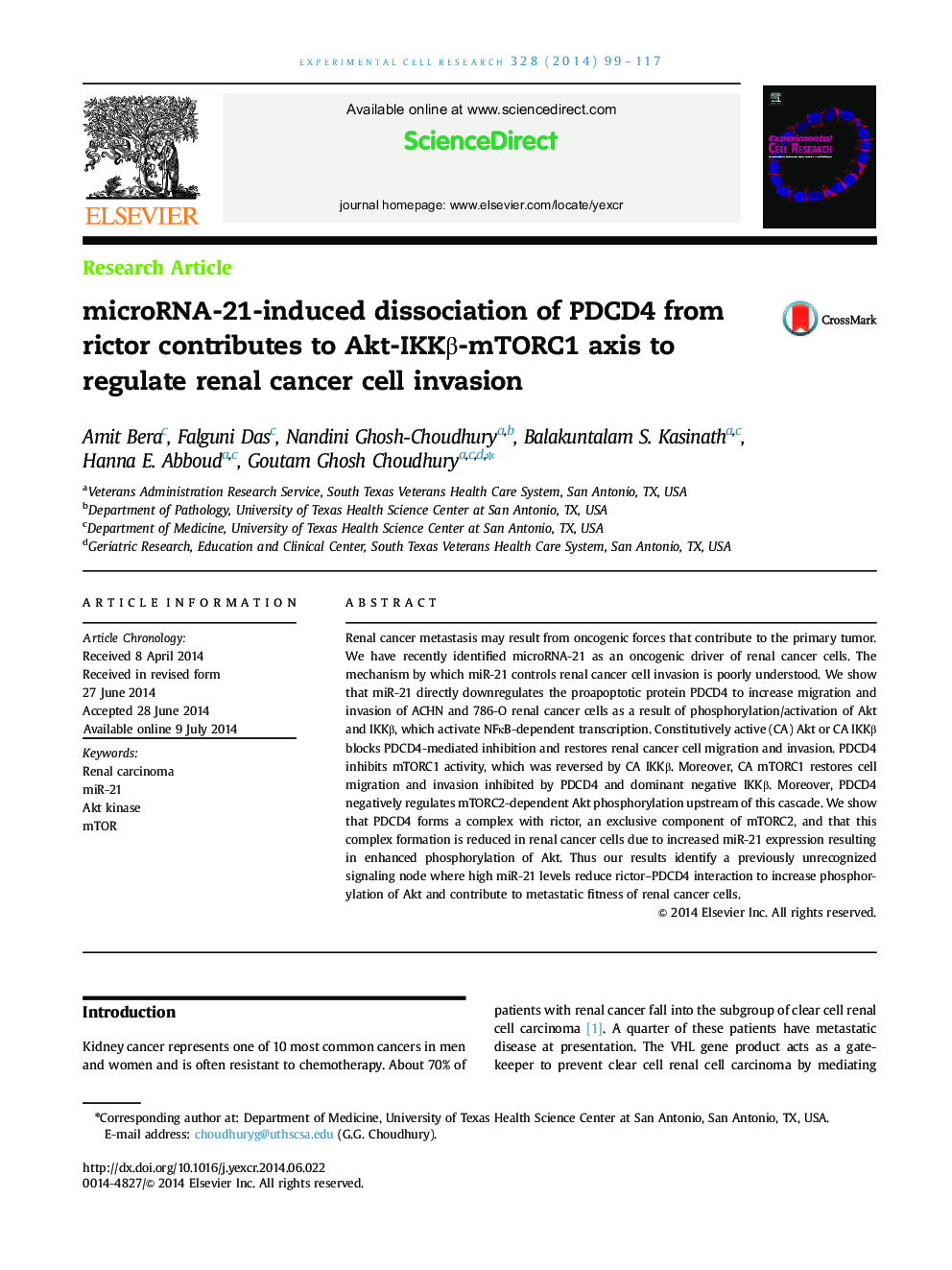| Article ID | Journal | Published Year | Pages | File Type |
|---|---|---|---|---|
| 2130291 | Experimental Cell Research | 2014 | 19 Pages |
•miR-21 targets PDCD4 to activate Akt and IKKβ for renal cancer cell invasion.•PDCD4 inhibits mTORC1 to prevent renal cancer cell migration and invasion.•IKKβ acts downstream of PDCD4 to activate mTORC1.•miR-21 regulates IKKβ to increase migration and invasion of renal cancer cells.•PDCD4 associates with rictor to inhibit mTORC2 activity.
Renal cancer metastasis may result from oncogenic forces that contribute to the primary tumor. We have recently identified microRNA-21 as an oncogenic driver of renal cancer cells. The mechanism by which miR-21 controls renal cancer cell invasion is poorly understood. We show that miR-21 directly downregulates the proapoptotic protein PDCD4 to increase migration and invasion of ACHN and 786-O renal cancer cells as a result of phosphorylation/activation of Akt and IKKβ, which activate NFκB-dependent transcription. Constitutively active (CA) Akt or CA IKKβ blocks PDCD4-mediated inhibition and restores renal cancer cell migration and invasion. PDCD4 inhibits mTORC1 activity, which was reversed by CA IKKβ. Moreover, CA mTORC1 restores cell migration and invasion inhibited by PDCD4 and dominant negative IKKβ. Moreover, PDCD4 negatively regulates mTORC2-dependent Akt phosphorylation upstream of this cascade. We show that PDCD4 forms a complex with rictor, an exclusive component of mTORC2, and that this complex formation is reduced in renal cancer cells due to increased miR-21 expression resulting in enhanced phosphorylation of Akt. Thus our results identify a previously unrecognized signaling node where high miR-21 levels reduce rictor–PDCD4 interaction to increase phosphorylation of Akt and contribute to metastatic fitness of renal cancer cells.
